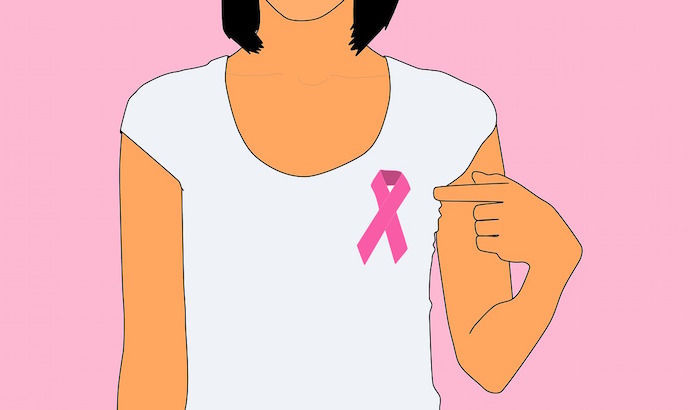
Image by Waldryano, Pixabay.com.
How to talk to your kids
When my mother’s hair fell out from the chemo, she let us style it into a Mohawk. We laughed so hard our sides ached. We laughed until we cried.
But not every family handles the pain of breast cancer with humor.
In her almost 20 years as a documentary writer and producer for CBS television, Linda Wallace filmed women with cancer and asked them over and over again, “What was the most difficult part of the journey?”
“I would talk to these mothers and then living with them, going through their treatment, their diagnosis, then their chemo and radiation, surgeries and then living life and surviving. … the answer was so intriguing to me,” said Wallace, who now lives in Santa Barbara. “The answer was, after much thought, ‘telling my children.’ And that stayed with me.”
As much as it is a mother’s instinct to protect her children from the pain she is going through, experts advise against it.
“You cannot shield a child from the cancer diagnosis,” said Holli Johnson, a medical social worker at Mayo Clinic.
Children will sense when something is wrong and may imagine the worst.
“Let’s face it: When mom is sick, that’s really weird. She’s usually the one with the Band-Aids treating the children,” Wallace said.
Although the level of detail may vary depending on the age of the children and the communication style of the family, the Mayo Clinic advises that it would be helpful for all children to know:
– The potential physical and emotional effects cancer could have on you. What to expect to see – for instance, during chemotherapy you’ll lose your hair.
– Your expectations of them and how they can help.
– How their daily lives will change – for example, who will cook meals or drive them to soccer practice or piano lessons.
– That it’s OK to share positive and negative feelings.
Wallace is now working on a book to help mothers with breast cancer have these types of conversations with their children.
“Normally, children don’t talk about Mom’s breasts, and, the topic of Mom’s cancer seems impossible to broach, regardless of its geography,” she said. “With this in mind, it’s been on my heart to design and write a kid-friendly book for mothers to sit down and read with their school age children.”
Working with the survivors support group from the Breast Resource Center and the American Cancer Society, Wallace is developing a workbook to help children express their feelings and understand what their mothers are going through.
Letters from real children whose mothers have breast cancer will also be part of the book. Other children who would like to participate can e-mail lindalswll@aol.com.
Wallace is hoping these tools will help the child become an important part of his mother’s cancer support team.
Siblings can also be an important support system for each other. Santa Barbara Mayor Marty Blum, who was diagnosed with breast cancer this summer, said that not only do her adult children call her more often since the diagnosis, they talk to each other more frequently than they used to.
Both the Breast Resource Center, 526 W. Pueblo St., and the Cancer Center, 300 W. Pueblo St., have extensive libraries with books and pamphlets specifically for parents telling children about cancer and for the children themselves.
“I have probably about 20 or 30 different books and booklets for parents to help them,” said Mary Solis, a social worker at the Cancer Center.
The Cancer Center also has a support group for children age 6 to 15 who have a family member with cancer or another serious illness. For information, call 682.7300.
Another good resource for children whose parents have cancer is www.kidskonnected.org, a national organization that offers chat rooms, camps and other resources specifically geared toward helping kids connect to others sharing similar experiences.
The most critical thing for parents to remember is that they teach their children by example. How you deal with difficult things in life – including illness – is going to give them the blueprint to deal with difficult things in their own lives.
